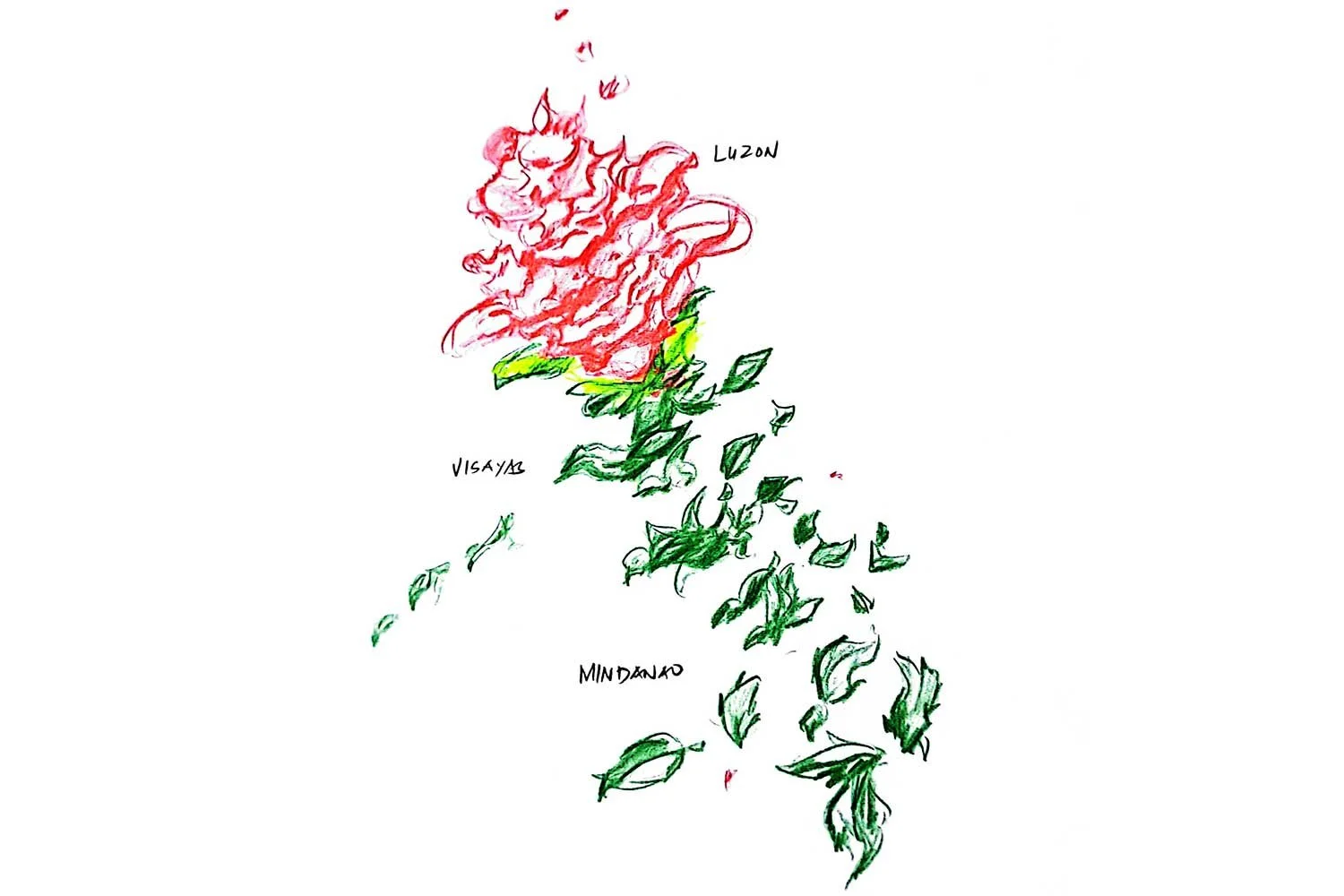21.05 – 25.06 ’25
Subjective Atlas: A Feminist Cartographic Practice
🕐 Wednesday 21 May — Wednesday 25 June 2025
📍 Yuchengco Museum, Manilla (PHIL)
🔗 yuchengcomuseum.org
🙏🏻 Josephine Turalba, Arriana Turalba, Portia Placino
Subjective Atlases are bottom-up cartographic publications that map a country, region, or city by the inhabitants themselves. It’s a form of feminist cartography that challenges the idea of maps as objective or neutral. They reveal how traditional maps often reflect dominant power structures and exclude certain voices. Instead, this form of feminist cartography centres lived experiences, personal stories, and embodied knowledge, especially from women and other marginalised groups. The publications embrace participatory methods, inviting those directly affected by a place to co-create how it is represented. This approach questions who is visible on a map, how space is named and drawn, and what is left out. Ultimately, feminist cartography reimagines mapping as a more inclusive, reflective, and critical practice.
The subjective mapping exhibition at the Yunchengco Museum focuses on the feminist voices and perspectives in the Subjective Atlas project. This approach aligns seamlessly with the values and mission of the Yunchengco Museum and the Philippine Women’s University. For this exhibition, 50 contributions from various Subjective Atlases are meticulously selected, rooted in countries, regions and cities like Brussels, Amsterdam, Colombia, Hainaut, Hungary, Mexico, the Netherlands, Pakistan, Palestine, Serbia and Bosnia and Herzegovina. These subjective mappings, crafted through the lenses of diverse backgrounds, ensure a rich and varied anthology that speaks to a broad audience. This selection of perspectives fosters a deeper understanding of the complexities of mapping identity, culture, and place.
Yuchengcomuseum: “ By having a primary role in the process of creating art, as well as being surrounded by others’ work and ongoing exhibitions, the participants’ relationship with the museum space transformed from that of a passive visitor to an active creator. It is in this collaborative process that the concept of subjective mapping is actualized.” Read more: yuchengcomuseum.org
Impressions
Opening Speach by Josephine Turalba, Yuchechengko Museum, 21 May 2025
Good afternoon, everyone, and thank you for joining us here at the Yuchengco Museum.
It is a true pleasure to welcome you all to this special occasion.
We begin by expressing our heartfelt gratitude to Ms. Jeannie Javelosa, the Yuchengco Museum Board, and the entire museum team for their steadfast support and warm hospitality. I would also like to thank the incredible Project Panatag team and our collaborators from the School of Fine Arts and Design, the School of Music, and the UNICORP at Philippine Women’s University. A special thanks as well to my fellow ITP (International Training Program) colleagues who stood by me committed to bringing this project home—your solidarity and shared belief in this vision have been vital to making today possible.
A warm welcome as well to our esteemed guests—members of the diplomatic corps, cultural partners, artists, educators, and students from PWU and beyond. Your presence here today reaffirms the power of art as a platform for dialogue, reflection, and transformation.
On behalf of the Artistic Research Center (ARc) of PWU and our project partners, we are proud to present this exhibition, which centers on women’s perspectives—using artistic cartography to illuminate personal geographies, indigenous knowledge, and lived experiences. These atlas entries—created by women from around the world—challenge the presumed objectivity of traditional maps and instead reveal the emotional, political, and cultural landscapes that shape how we understand our place in the world.
Let me share a brief story of how this journey began.
I met Annelys de Vet in Belgium while I was pursuing my Advanced Master’s in Artistic Research, and she was finishing her PhD. She came to our class and shared her project, Subjective Editions. Her energy was contagious—brimming with conviction, clarity, and care. I was struck not only by the beauty of the atlases, but by the politics behind them. These were not maps of borders and measurements; they were maps of memory, identity, resistance, and hope. After that session, I told her, we must bring this to the Philippines.
Because we are still grappling with the shadows of colonialism—and the corporate imperialism that followed. I grew up shaped by those lingering forces—wanting slender feet like the Chinese, lighter skin like the Americans. My father used to take me inside the American bases in Clark and Subic, and I remember how proud I felt just to taste Baskin Robbins ice cream—as if proximity to another culture somehow made me more worthy. And for many years, being Filipino didn’t quite feel like enough.
But things have been shifting for the past decade or so. Today, there is growing appreciation for our country, our people, and our many histories. I don’t want my children to inherit the same insecurities I once carried. And now that I work in education, I see how important it is for the next generation to shape our identity as a nation—through stories, through memory, and through our own ways of knowing.
In fact, during this workshop, something beautiful happened. For many participants, it suddenly dawned on them—how deeply they love this country. How much they carry, how much they remember, and how much they want to reclaim. This is what Subjective Atlas makes possible: it gives form to a feeling we’ve often held in silence.
That is why we brought Subjective Atlas here. This exhibition is just the beginning. It serves as a prelude to the Subjective Atlas of the Philippines, which we will develop with communities across Luzon, Visayas, and Mindanao. In addition, we are hosting two workshops and a public lecture to deepen this collective process of mapping from within.
Maraming salamat po, and welcome once again.




















